
 |
FRANKLY SPEAKING
Economic challenges ahead
First, few hours after her occupation of the high profile job as India’s first full-time woman Finance and Corporate Affairs Minister, the GDP shows slipping to 5.8 per cent compared to 8.1 per cent in the corresponding period last year. This works out to be the lowest growth rate in 20 quarters. This puts India behind China after almost two years.
Chief Statistician of India says: “It is a new design and a new matrix. It would be unfair to compare it with the past. This 45- year high is your interpretation. I do not want to claim that it is 45- year low or high”. I prefer to leave this matter here simply because it had already acquired controversial overtones. In any case, jobs data poses a policy challenge for PM Modi’s second term in office. There are, of course, various facets to unemployment scenario and no single data source is complete by itself. This in itself is going to be a big task for the new government. Prime Minister Modi has added one more mantra to his earlier two mantras. He had added “Sabka Vishwash” (everyone’s trust) to his two earlier mantras, “sabka saath, sabka vikas”, that is, development for all. I welcome these mantras. Two new Cabinet panelsWith the spectre of slowdown haunting the economy and rising unemployment, Prime Minister on 5th June constituted two new Cabinet committees under his chairmanship to spur economic growth and investment and employment. Investment and Growth committee includes Home Minister Amit Shah, Finance Minister Nirmala Sitharaman , Road Transport and Highways and of MSME Minister Nitin Gadkari and Railway Minister Piyush Goyal . Another 10-member Cabinet Committee on Employment and Skill Development has been formed which includes Shah, Sitharaman, Goyal, Minister of Agriculture and Farmers Welfare, Rural Development and Panchayat Raj Narendra Singh Tomar, Human Resource Development Minister Ramesh Pokhriyal 'Nishank', Petroleum and Natural Gas Minister Dharmendra Pradhan, Minister Skill and Entrepreneurship Mahendra Nath Pandey and Ministers of State Santosh Kumar Gangwar (Labour) and Hardeep Singh Puri (Housing and Urban Affairs). India’s “virtual Prime Minister”, as stated in an article in Washington Post, has guts to strike at the root of the malaise afflicting the body politic. Thus, the ministers will have to first understand problems and tackle them with the seriousness they deserve. The art of hypocrisy hereafter will be the prerogative of a few, and not an open game for every minister! However, these mantras have to be translated into a plan of action, showing results on the ground! It is for PM Modi to work out a plan of action to translate his mantras into realities on the ground. Will PM Modi do it? It should be possible for the PM and his high profile team. They should perform better this time on the ground. For these tasks, the ministers are expected to be well focused on the nature of challenges and priorities for action. For this purpose, PM Modi has to adopt the reformist path, but with utmost caution. Since productivity is the key factor, it will require coordinated efforts for increased output with the help of skills development, strengthening of the public infrastructure, along with capital mobilization. Equally crucial will be energy generation. In short, the overall stress has to be on economic reforms and liberalisation while ensuring the safety network from bad loans. For this, radical reforms are necessary in the financial sector, especially in banking operations. This, in turn, will require a vigorous system of transparency and accountability.
The Prime Minister should also give a serious thought to decentralization. It may not be advisable to concentrate all the strings of power in the PMO which generally is not in touch with the changing ground realities. And any policy decision in critical rural areas of agriculture, climate changes and farmers’ dilemma on quality seeds, pricing and guidance is the job which has to be left to knowledgeable persons in these areas who are expected to perform in a coordinated manner in tune with the needs of farmers. This is the right lesson to learn from PM Modi’s first term in office so as not to repeat the mistakes of demonetization and ad hoc handling of the GST phenomenon. India can set its economic house zooming if the persons at the helm learn to understand rural ground realities, and think and reflect before taking the plunge in policy decisions. The country cannot be run in a s state of vacuum with half-baked political experts. We have to run the country’s complex economic challenges professionally, and not by the saffron colour of the “experts”. May I remind Narendra Modi that the politics of expediency may make or unmake individuals but it cannot make a nation great ? My main purpose is to provide a true mirror of India today to our political leadership. We have to be honest to our people.
As for South Block, I welcome the induction of S. Jaishankar as professional External Affairs Minister, though PM Modi is known to be his own Foreign Minister. This means Jaishankar will have to adjust his role in tune with the Prime Minister’s moves and counter-moves in the global arena. Jaishankar will do well to learn from earlier External Affairs Minister Sushma Swaraj! She knew the art of governance as a popular public figure. Equally crucial will be Jaishankar’s adjustment with Home Minister Amit Shah who as a close confidant of Narendra Modi has emerged as the most powerful entity in the Modi establishment. In any case, Jaishankar’s foreign affairs moves have to be in close concert with domestic policies, especially with regard to Kashmir and other sensitive domestic matters so that overall Indian policies on the international stage acquire the requisite strategic depth which, right now, is lacking. Be that as it may. Home Minister Amit Shah will have to be watched closely. The Modi establishments plan was to establish Amit Shah as No.2 in the government. That is why now defence Minister was sidelined and was appointed on 2 Cabinet Committees – on security and economic affairs. Perhaps, the Modi-Shah duo made a deliberate attempt to cut UP strongman to size. Earlier, as exHome Minister he had featured on all eight committees.
Amidst evergreen serial of “kissa kursi ka”, did any of the ministers care for what Gandhi preached and practised? They went by “I-do-notcare” attitude. I must state clearly and firmly such an attitude will no longer be tolerated by Modi-Shah duo. India’s “virtual Prime Minister”, as stated in an article in Washington Post, has guts to strike at the root of the malaise afflicting the body politic. Thus, the ministers will have to first understand problems and tackle them with the seriousness they deserve. The art of hypocrisy hereafter will be the prerogative of a few, and not an open game for every minister! May I also remind Narendra Modi that the politics of expediency may make or unmake individuals but it cannot make a nation great. My main purpose is to provide a true mirror of India today to one political leadership. There is no need to indulge in gimmicry. We have to be honest to our people. Our disparities and contrasts are so sharp that a number of bridges of understanding will have to be built for our nation-building. For this, our leaders have to come to the brass tacks of key issues on a priority basis. |
|


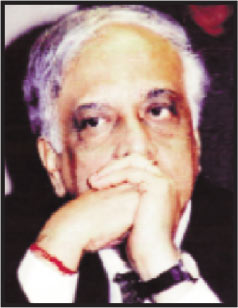 Hari Jaisingh
Hari Jaisingh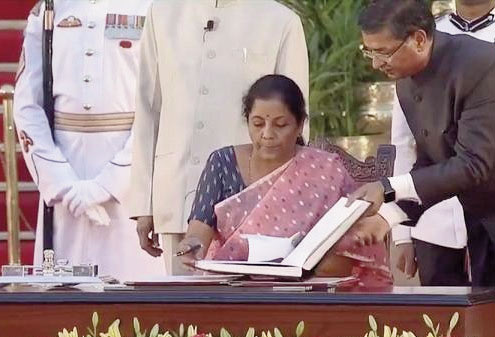 Nirmala Sitharaman after taking
Nirmala Sitharaman after taking 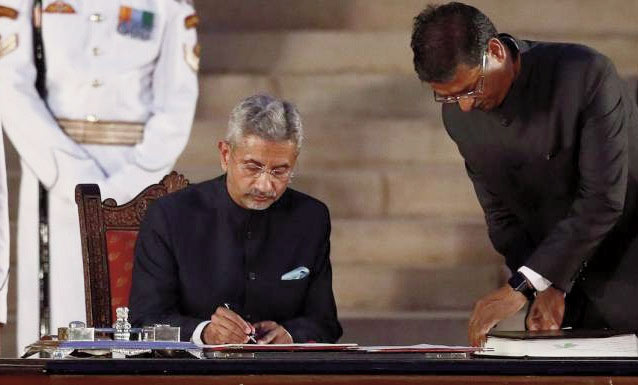 Former Foreign Secretary Jaishankar taking charge as External Affairs Minister
Former Foreign Secretary Jaishankar taking charge as External Affairs Minister 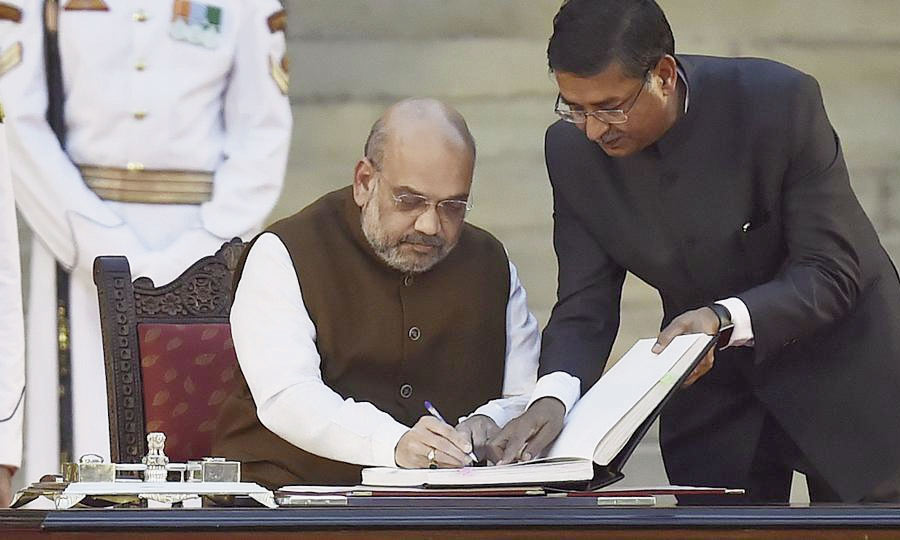 Amit Shah after taking oath as a
Amit Shah after taking oath as a 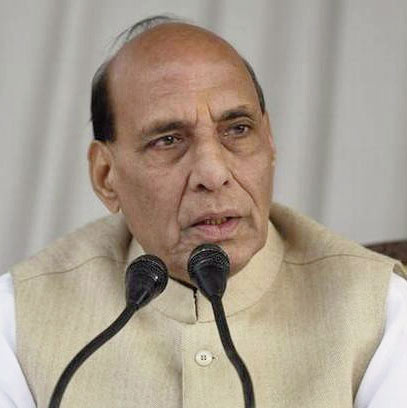 Rajnath Singh
Rajnath Singh